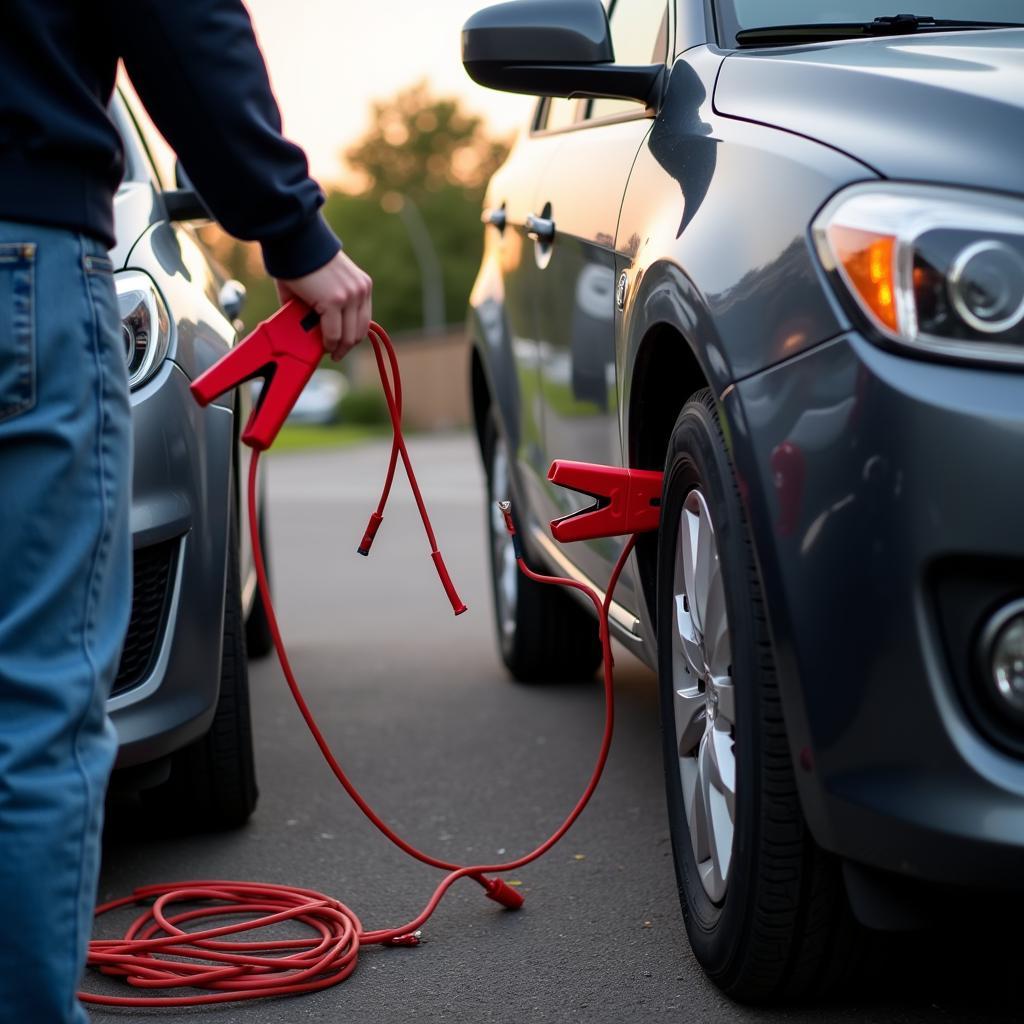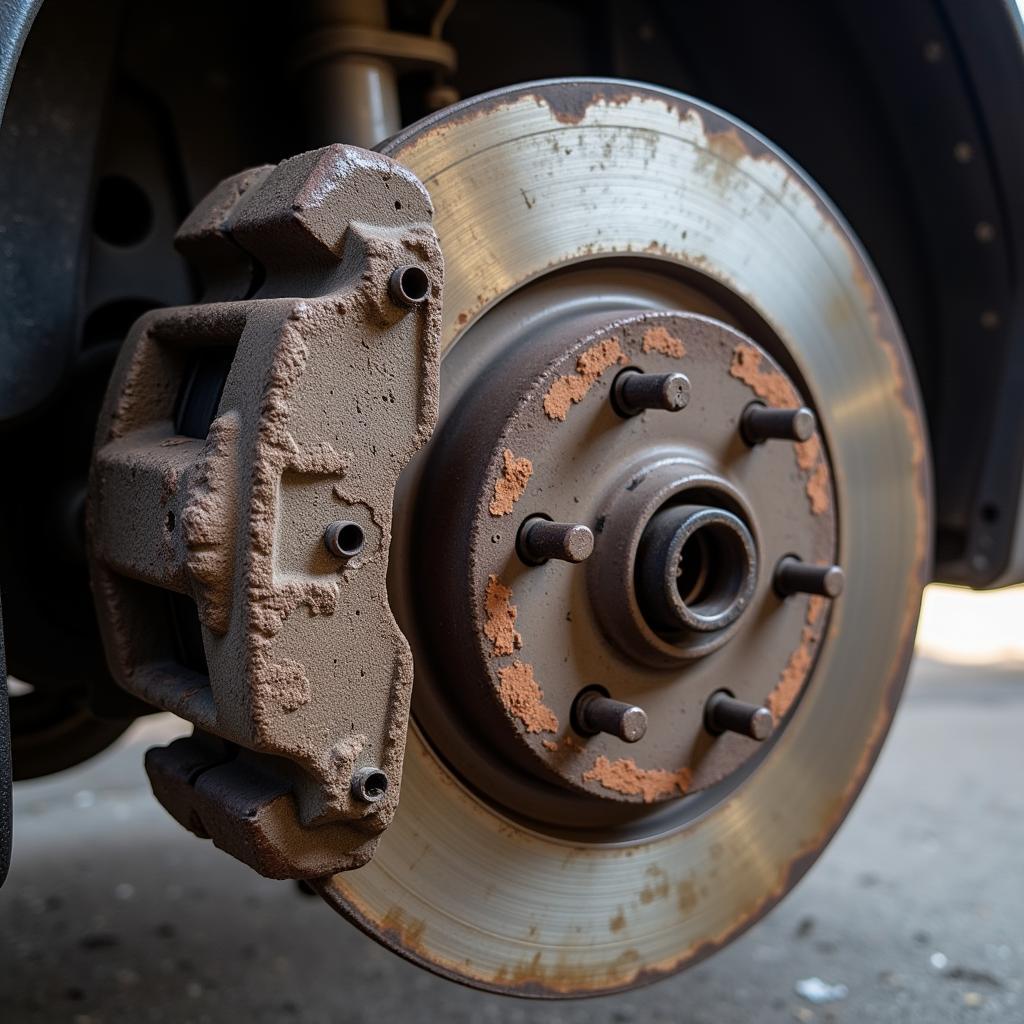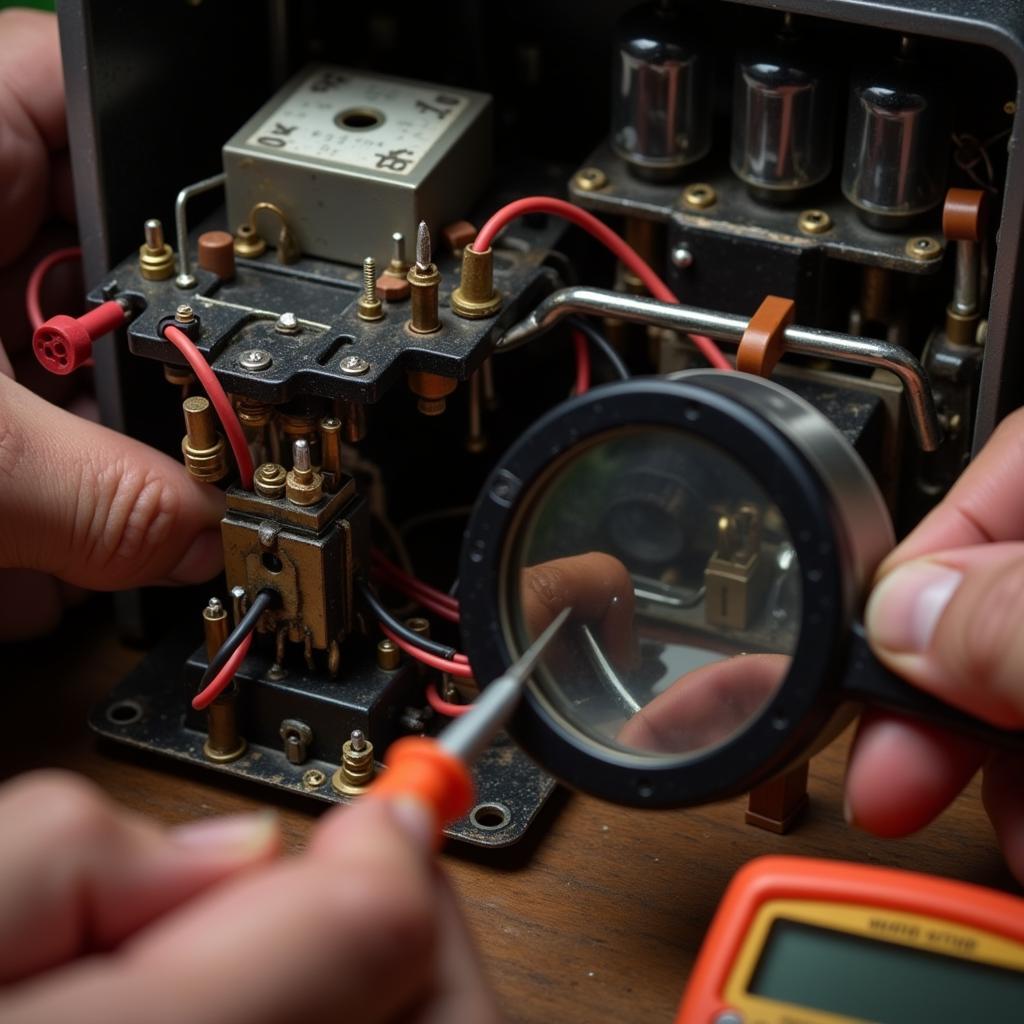Defective car battery symptoms can be frustrating and leave you stranded. Understanding these symptoms is crucial for maintaining your vehicle’s reliability and avoiding unexpected breakdowns. This comprehensive guide will equip you with the knowledge to identify, diagnose, and address car battery issues.
Recognizing the Telltale Signs of a Failing Battery
Several key defective car battery symptoms indicate it’s time for a replacement. These include slow engine cranking, dim headlights, clicking sounds when turning the key, and a dashboard warning light. Additionally, a swollen or leaking battery case, and a rotten egg smell, are clear indicators of a serious problem. Ignoring these signs can lead to unexpected breakdowns and potential damage to other vehicle systems. If you experience any of these, it’s best to address the issue promptly.
Slow Engine Cranking: A Common Early Symptom
One of the most common defective car battery symptoms is a slow engine crank. This means the engine turns over slowly and struggles to start. A healthy battery provides a strong burst of power to start the engine quickly. If your car is taking longer than usual to start, it’s a strong sign your battery is weakening. Don’t ignore this early warning sign, as it often precedes a complete battery failure.
Dim Headlights and Electrical Issues
A failing battery struggles to provide sufficient power to all the vehicle’s electrical systems. This can manifest as dim headlights, especially noticeable at idle. You might also experience flickering interior lights, malfunctioning power windows, or issues with the radio. These are all potential defective car battery symptoms and should be investigated. If your car battery is dead, addressing the issue quickly is important.
 Dim Headlights and Failing Battery
Dim Headlights and Failing Battery
Clicking Sounds and Dashboard Warnings
When you turn the key and hear a rapid clicking sound but the engine doesn’t start, it’s often a sign of a dead battery. The clicking is the starter motor trying to engage but lacking the necessary power. Also, look out for a battery or check engine warning light on your dashboard, as these can indicate a charging system problem, often related to the battery. Testing for a parasitic battery drain can be useful in diagnosing such issues.
What Causes a Car Battery to Fail?
Several factors contribute to a car battery’s demise. Extreme temperatures, both hot and cold, can significantly impact battery life. Leaving lights or accessories on can drain the battery, especially if the engine isn’t running. A faulty charging system, like a bad alternator, can also prevent the battery from recharging properly. Does a weak battery affect the alternator? Yes, it can put a strain on it and lead to further problems.
Cold Weather and Its Impact on Batteries
Cold weather killed my car battery is a common complaint. Cold temperatures reduce a battery’s capacity to hold a charge. This can lead to starting problems, especially in older batteries. Ensuring your battery is in good condition before winter arrives is essential.
 Jump Starting a Dead Car Battery
Jump Starting a Dead Car Battery
Excessive Heat and Battery Damage
Excessive heat can also damage a car battery, leading to fluid evaporation and internal damage. Parking in shaded areas and ensuring proper ventilation under the hood can help mitigate the effects of heat.
Troubleshooting and Solutions
If you suspect a faulty battery, several steps can be taken to diagnose and address the issue. Start by visually inspecting the battery for any signs of damage, corrosion, or leakage. Then, have the battery tested at a local auto parts store or mechanic. They can use a specialized tester to determine the battery’s state of charge and overall health.
“Regular battery testing is crucial for preventative maintenance,” says automotive expert John Smith, ASE Certified Master Technician. “It’s much easier and less expensive to replace a weak battery before it leaves you stranded.”
Jump Starting a Dead Battery
If your battery is completely dead, jump-starting it can be a temporary solution. However, it’s essential to address the underlying cause of the dead battery. Simply jump-starting the car without investigating the root cause could leave you stranded again shortly. You might need car key fobs replacement if they are not functioning correctly.
“Don’t rely on jump-starts as a long-term solution,” advises automotive specialist Maria Garcia, Certified Automotive Instructor. “A dead battery is often a symptom of a larger problem that needs to be addressed.”
Conclusion
Recognizing defective car battery symptoms is vital for maintaining your vehicle’s reliability and avoiding inconvenient breakdowns. By understanding the signs of a failing battery and taking appropriate action, you can keep your car running smoothly. Regular maintenance and prompt attention to warning signs can help extend the life of your battery and prevent unexpected problems. Don’t delay addressing car battery issues, as they can lead to more significant problems down the road.
FAQ
-
How long does a car battery typically last? Most car batteries last between 3 and 5 years.
-
Can I replace a car battery myself? Yes, but it’s essential to follow safety precautions and consult your vehicle’s owner’s manual.
-
How can I prevent my car battery from dying? Regularly clean the battery terminals, avoid leaving lights and accessories on when the engine isn’t running, and have the charging system checked periodically.
-
What should I do if my car battery dies while driving? Safely pull over to the side of the road and call for roadside assistance.
-
Are there different types of car batteries? Yes, there are various types, including lead-acid, AGM (Absorbent Glass Mat), and EFB (Enhanced Flooded Battery).
-
Is it safe to jump-start a car battery? Yes, if done correctly. Follow the instructions in your vehicle’s owner’s manual.
-
What are the signs of a bad alternator? Dim headlights, flickering interior lights, and a whining sound from the engine compartment can indicate a bad alternator.



